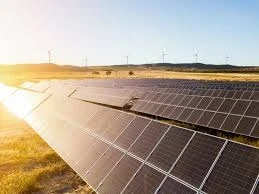Exploring the Benefits of a 3kW Off-Grid Inverter for Sustainable Energy Solutions
Understanding the 3kW Off-Grid Inverter A Gateway to Energy Independence
In recent years, the quest for sustainable living has become a priority for many individuals and families. One essential component of this movement is the off-grid inverter, particularly the 3kW variant, which provides a reliable and efficient solution for generating and using renewable energy. This article will discuss the features, benefits, and applications of a 3kW off-grid inverter, enabling readers to understand its importance in today's energy landscape.
What is an Off-Grid Inverter?
An off-grid inverter is a device that converts direct current (DC) electricity generated from renewable sources—such as solar panels or wind turbines—into alternating current (AC) electricity, which is used by most household appliances and electrical systems. Unlike grid-tied inverters, which rely on the electricity grid for backup and load balancing, off-grid inverters are designed to operate independently, making them ideal for remote areas or for those seeking energy autonomy.
The 3kW Advantage
A 3kW off-grid inverter can handle a variety of household energy needs, making it a popular choice for small to medium-sized solar power systems. This capacity is suitable for powering essential appliances such as refrigerators, lights, fans, and even some heating devices, depending on the load. The compact and versatile nature of a 3kW inverter allows it to be integrated seamlessly into various setups, whether it’s for a cabin, an RV, or a permanent home installation.
Key Features of a 3kW Off-Grid Inverter
1. Pure Sine Wave Output Most high-quality 3kW off-grid inverters provide a pure sine wave output, which is critical for ensuring compatibility with sensitive electronics and appliances. This means appliances run more efficiently and have a longer lifespan.
2. Multiple Input Options Many off-grid inverters come with multiple input options, allowing users to connect various power sources. This flexibility is essential for optimizing energy generation from renewable sources.
3. Battery Management These inverters often have integrated battery management systems that regulate charging and discharging, enhancing battery life and overall system efficiency.
off grid inverter 3kw

4. Built-in Protection Features Safety is a key concern in any electrical installation. Off-grid inverters are equipped with features like overload protection, short circuit protection, and thermal protection to prevent damage and ensure safe operation.
Benefits of Using a 3kW Off-Grid Inverter
1. Energy Independence The most significant advantage of investing in a 3kW off-grid inverter is the ability to generate and use your own electricity. This independence from the grid not only reduces energy bills but also provides assurance during power outages.
2. Environmental Impact Using renewable energy sources like solar reduces dependence on fossil fuels, contributing to a more sustainable and eco-friendly lifestyle.
3. Flexibility in Installation Off-grid systems can be installed in remote locations where access to the power grid is limited or non-existent. This opens possibilities for living in off-the-beaten-path locations without sacrificing modern conveniences.
4. Scalability A 3kW setup can be expanded by adding more panels and batteries, allowing homeowners to increase their energy capacity as needed.
Applications of a 3kW Off-Grid Inverter
The versatility of a 3kW off-grid inverter makes it suitable for various applications. It can be used in residential homes, recreational vehicles, boats, and tiny houses. Additionally, it serves well in agricultural settings, powering irrigation pumps and tools where electricity is otherwise unavailable.
Conclusion
As energy demands grow and environmental concerns rise, solutions like the 3kW off-grid inverter offer a promising pathway to energy independence and sustainability. By harnessing renewable energy, individuals can take control of their electricity needs while contributing positively to the planet. Investing in a 3kW off-grid inverter can be an empowering step towards a greener and more self-sufficient future.
-
String Solar Inverter: The High-Efficiency Solution for Smart Solar EnergyNewsJul.14,2025
-
Revolutionizing Rooftop Energy with the Power of the Micro Solar InverterNewsJul.14,2025
-
Power Independence with Smart Off Grid Solar Inverter SolutionsNewsJul.14,2025
-
On Grid Solar Inverter: Powering the Future with Smart Grid IntegrationNewsJul.14,2025
-
Monocrystalline Solar Panels: High-Efficiency Power for the Future of Clean EnergyNewsJul.14,2025
-
Bifacial Solar Panel: A Smarter Investment for Next-Generation Energy SystemsNewsJul.14,2025







